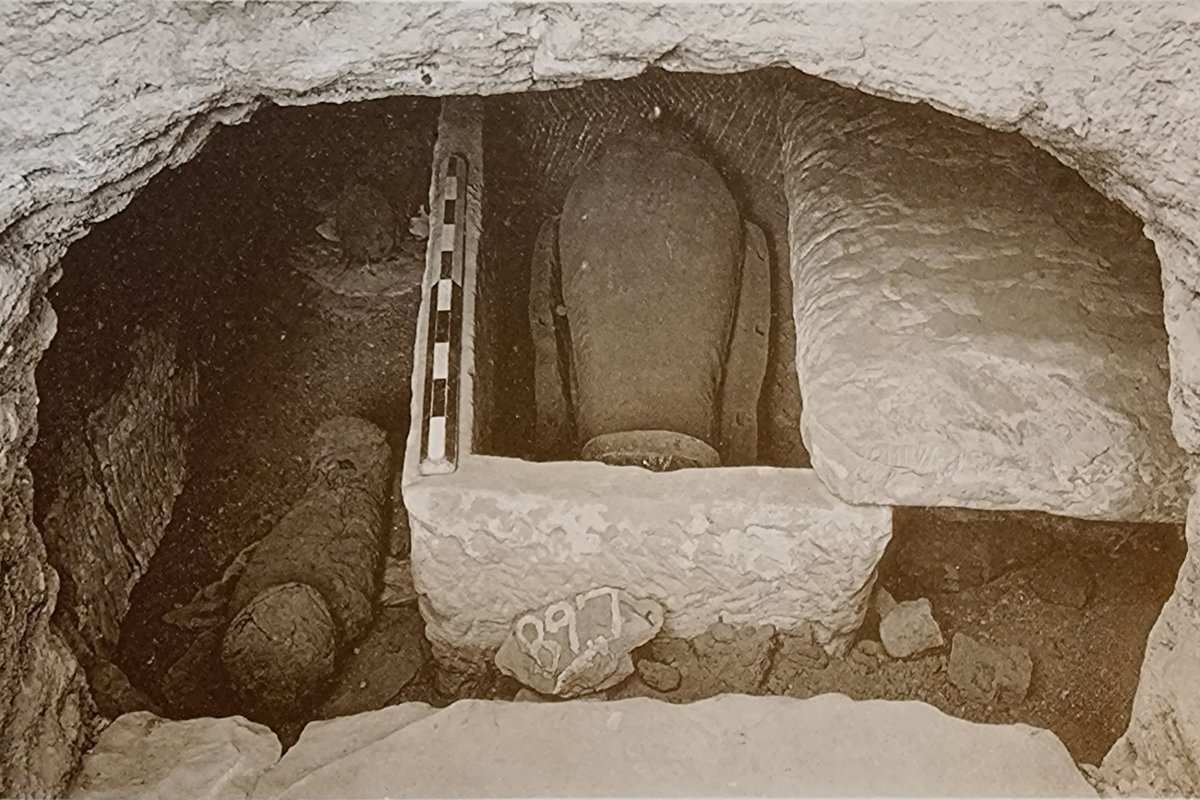A researcher has uncovered a set of historical records thought to have been lost during the Second World War, and the information contained in them has shed new light on an ancient people.
Jenny Metcalfe, a biomedical Egyptologist with the University of Manchester in the United Kingdom, uncovered documents known as "recording cards" from one of the first-ever excavations conducted in Lower Nubia in the early 20th century.
Nubia was an ancient region in northeast Africa centered on the Nile River valley that extended across what is now northern Sudan and southern Egypt. This region, inhabited by the Nubian people, was the home of one of the earliest civilizations in ancient Africa thousands of years ago.
Over the millennia, various cultures and kingdoms emerged and disappeared in the region, perhaps the most notable being the Kushite Empire. The region—parts of which were ruled by ancient Egyptian pharaohs at times—is traditionally divided into two portions: Lower and Upper Nubia. The "lower" portion is actually the northern part of Nubia.

Metcalfe found the recording cards hidden in an archive at the University of Cambridge while conducting research for her book, The Archaeological Survey of Nubia Season 2 (1908-9) Report on the Human Remains.
Between 1907 and 1911, a team of researchers conducted excavations in Lower Nubia throughout four seasons. During this time, they excavated more than 150 Nubian cemeteries and uncovered around 20,000 graves, unearthing over 7,000 bodies and numerous artifacts in the process. These findings provide a unique record of the ancient communities living in the Nile region of southern Egypt.
"The oldest cemeteries excavated in this survey belong to the 'A-group' Nubian population, which began around 3,800 B.C., although there is evidence of human occupation in the region before this," Metcalfe told Newsweek.
Key figures in these investigations were anatomists Grafton Elliot Smith and his colleague Douglas Derry, who oversaw the anatomical work during the second season. The recording cards from seasons three and four remain lost, but most from the second season are fully documented in Metcalfe's book.
"The recording cards are pre-printed cards designed by Grafton Elliot Smith to help record the individuals they found," Metcalfe said. "They have boxes for recording details such as site, historical age, age and sex, long bone and skull measurements, teeth present and any evidence of illness or trauma, such as broken bones."
"They allowed the anatomists to both study individuals and compare those individuals to build up a picture of the Nubian communities."
It was previously assumed that the recording cards from season two had been kept with the season one cards, which were destroyed by a bomb during WWII. But Metcalfe found most of the season two cards—as well as a handful from season one—in the Duckworth Laboratories archive at Cambridge, mixed up with those from another excavation conducted a few years later.
"I found 495 of these cards, most of which provide details about individuals from 20 different cemeteries. Some record the discovery of several bodies at once," Metcalfe said. "The recording cards cover individuals from the A-group period through to Christian-period cemeteries dating to around A.D. 500-1,100."
The latest findings shed new light on what life was like for ordinary people living along the Nile in ancient Nubia, according to Metcalfe.
The research has yielded a "huge" amount of information on disease, trauma and anatomical variations seen in these ancient communities, Metcalfe said in a University of Manchester press release.
"This discovery adds significantly to our understanding of life in ancient Nubia, providing information about communities previously assumed lost," she told Newsweek.
"The cemeteries excavated in this survey are not those where kings and queens were buried," Metcalfe said. "Instead, they tell us about how old people in Nubia were when they died, the ways in which they were prepared for burial and they give us some idea about how large these individual communities were at different points in history. This is the first time it has been possible to reconstruct this information for these particular cemetery populations."
The data recorded on the cards clearly show that ancient Nubians cared for members of their communities who were ill or disabled.
"Thousands of years before the advent of modern medicine, we have evidence of individuals who had survived very serious illness or injury for many months or years," she said. "This would have only been possible with care from their families and communities, such as keeping them safe, providing food and water and managing wounds.
"Importantly, Elliot Smith and Derry recorded the discovery of children in these communities, as well as adults. This is quite unusual for the time, as anatomists often focused solely on adults. Because of this, we have a much better idea about life expectancy at the time and the burial practices used for both children and adults."
Uncommon Knowledge
Newsweek is committed to challenging conventional wisdom and finding connections in the search for common ground.
Newsweek is committed to challenging conventional wisdom and finding connections in the search for common ground.
About the writer
Aristos is a Newsweek science reporter with the London, U.K., bureau. He reports on science and health topics, including; animal, ... Read more
To read how Newsweek uses AI as a newsroom tool, Click here.






